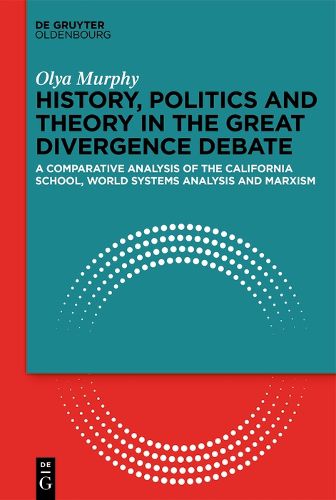Readings Newsletter
Become a Readings Member to make your shopping experience even easier.
Sign in or sign up for free!
You’re not far away from qualifying for FREE standard shipping within Australia
You’ve qualified for FREE standard shipping within Australia
The cart is loading…






This title is printed to order. This book may have been self-published. If so, we cannot guarantee the quality of the content. In the main most books will have gone through the editing process however some may not. We therefore suggest that you be aware of this before ordering this book. If in doubt check either the author or publisher’s details as we are unable to accept any returns unless they are faulty. Please contact us if you have any questions.
World history suffers from a paucity of clearly articulated, convincing explanations. While the rise of postmodernism and challenges to Eurocentrism did lead to some important correctives, the pendulum has swung too far the other direction, with a corresponding danger of 'throwing the baby out with the bathwater'. We need careful, theoretically informed debates about ways of organizing world history. What constitutes a good historical explanation? What should guide historians to choose relevant facts? Which theoretical schools could be made useful, and to what ends? These questions are especially relevant to the main topic of this book: the 'great divergence' between the west and the rest of the world, and how this historical rupture is to be explained.
The book provides extensive critical analyses of some of the key claims in world history, analyzing their strengths as well as their major weaknesses-too often rooted in insufficient familiarity of historians with theories they discard. It also historicizes the field and the debates to partly account for what caused some theories to become more influential and others to fall into oblivion-despite the fact that the more influential frameworks are seriously flawed and some of the more marginalized ideas are more coherent and plausible. The book offers insights regarding the theoretical and political relevance of older debates about the transition to capitalism and historical materialism. Three major schools of thought in world history are critically examined through an in-depth theoretical and comparative analysis that has not been undertaken elsewhere: the so-called 'California School', World Systems Analysis, and Marxist theories of history, capitalism, and the transition from feudalism to capitalism. Murphy argues that, despite some of the more recent criticisms of older approaches to world history, the older theories remain indispensable for the writing of world history and for coming to terms with issues of global poverty, inequality and eco-catastrophe.
$9.00 standard shipping within Australia
FREE standard shipping within Australia for orders over $100.00
Express & International shipping calculated at checkout
This title is printed to order. This book may have been self-published. If so, we cannot guarantee the quality of the content. In the main most books will have gone through the editing process however some may not. We therefore suggest that you be aware of this before ordering this book. If in doubt check either the author or publisher’s details as we are unable to accept any returns unless they are faulty. Please contact us if you have any questions.
World history suffers from a paucity of clearly articulated, convincing explanations. While the rise of postmodernism and challenges to Eurocentrism did lead to some important correctives, the pendulum has swung too far the other direction, with a corresponding danger of 'throwing the baby out with the bathwater'. We need careful, theoretically informed debates about ways of organizing world history. What constitutes a good historical explanation? What should guide historians to choose relevant facts? Which theoretical schools could be made useful, and to what ends? These questions are especially relevant to the main topic of this book: the 'great divergence' between the west and the rest of the world, and how this historical rupture is to be explained.
The book provides extensive critical analyses of some of the key claims in world history, analyzing their strengths as well as their major weaknesses-too often rooted in insufficient familiarity of historians with theories they discard. It also historicizes the field and the debates to partly account for what caused some theories to become more influential and others to fall into oblivion-despite the fact that the more influential frameworks are seriously flawed and some of the more marginalized ideas are more coherent and plausible. The book offers insights regarding the theoretical and political relevance of older debates about the transition to capitalism and historical materialism. Three major schools of thought in world history are critically examined through an in-depth theoretical and comparative analysis that has not been undertaken elsewhere: the so-called 'California School', World Systems Analysis, and Marxist theories of history, capitalism, and the transition from feudalism to capitalism. Murphy argues that, despite some of the more recent criticisms of older approaches to world history, the older theories remain indispensable for the writing of world history and for coming to terms with issues of global poverty, inequality and eco-catastrophe.